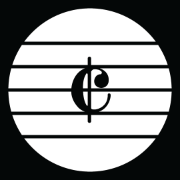-
Posts
2,116 -
Joined
-
Days Won
37
SergeOfArniVillage last won the day on December 4 2021
SergeOfArniVillage had the most liked content!
About SergeOfArniVillage

- Birthday 05/06/1991
Profile Information
-
Biography
I'm an inter-dimensional puppet. What else is there to tell?
-
Gender
Male
-
Interests
Music
-
Favorite Composers
Beethoven & Franz Liszt ... and Mitsuda-san
-
Instruments Played
Piano
Recent Profile Visitors
SergeOfArniVillage's Achievements
-

Impromptu in G Minor
SergeOfArniVillage replied to SergeOfArniVillage's topic in Piano Music, Solo Keyboard
@Thatguy v2.0 Hey, thanks for dropping by and listening and commenting. I appreciate it! You’re right, a live performance would add a lot. I wrote this piece to be easy to play, with the exception of mss. 80-88: the L.H there does complicates things, but doing “piano drills” on 8 mss of music is super reasonable, imo. I do play the piano, personally! I’ve played off and on for years. -

Impromptu in G Minor
SergeOfArniVillage replied to SergeOfArniVillage's topic in Piano Music, Solo Keyboard
@Luis Hernández thank you for your thoughts! I actually thought it was going to be a nocturne at first, but it ended up going a different direction. @Henry Ng Tsz Kiu I agree, I love and appreciate short and sweet. Maybe one if these days, I’ll try my hand at writing a series if preludes, too 🤷🏻♂️ but no promises, LOL -

Impromptu in G Minor
SergeOfArniVillage replied to SergeOfArniVillage's topic in Piano Music, Solo Keyboard
@Henry Ng Tsz Kiu Thanks for taking time to comment! I really like your idea of just trying to write easier pieces. I struggle a lot with, "Is this even good?", if you know what I mean. I'm trying to be balanced regarding what I write, because on the one hand, I don't want to be too picky about every little thing I write, because then, it's easy to lose enthusiasm. But on the other hand, I really hate the idea of wasting anybody's time with something that's really just not worth listening to. Maybe one day, I'll figure it out 🤷♂️ Again, thanks for your comment! -

Op.7 Nr.2 my new microtonal piece
SergeOfArniVillage replied to cloud10000's topic in Piano Music, Solo Keyboard
This is so quirky, and different! I like the sound effect additions more than I thought I would by the end. They're funny, and I do mean legitimately "LOL" funny (something about the scream sfx in particular cracks me up, and the car collision moving into a major chord is also really funny). I'm trying to decide if the extra effects add more than gimmick or shock value, or apparent absurdity, and ... I think, regardless of whether it does or not, looking at the piece from a more serious angle, it was actually the footsteps that were most evocative, and legitimately came across as rather creepy and engaging. But regardless, I appreciate this piece because it's different and provides a genuinely unique flavor, one I'm not sure I've ever heard before in this particular way. Thanks for sharing, this was a lot of fun to listen to!- 2 replies
-
- microtonal
- experimental
-
(and 3 more)
Tagged with:
-

I wrote a waltz with B3 in every bar...
SergeOfArniVillage replied to 林家興's topic in Piano Music, Solo Keyboard
Honestly, this is really incredible. If I was a teacher, and my student gave me this, I would be beyond proud. This piece is ... it's a classic! Infectious, and feels effortless. It reminds me of Le Festin from Ratatouille, in spirit. It has that same carefree, good-natured, "magical" vibe to it. Thanks for sharing, this was awesome. -

Arpeggio Etude for Piano
SergeOfArniVillage replied to PeterthePapercomPoser's topic in Piano Music, Solo Keyboard
This is really beautiful! I would love to hear a "finessed" version of this piece, as the MIDI isn't doing it justice at all. I like the choice of time signature change in the middle, I think that was a really clever way of developing the piece. -
Lately, I've had a brutal case of writer's block. I've had all sorts of ideas floating around, but nothing seems to coalesce. Just fragments. This piece is, essentially, my attempt to break out of my frustrating lack of inspiration. I've never written an "impromptu" before. I didn't go into it knowing what I was writing. It just sort of ... emerged this way. https://app.box.com/s/ohe4i9u2jw7cqw4xyi7pak7plsnucgvs (Impromptu in G Minor -- WAV File) https://app.box.com/s/pc8l32bqrc7kjh428f2cugyg4refcnck (Impromptu in G Minor -- PDF File)
-

Adagio Lamentoso in G Minor for Piano
SergeOfArniVillage replied to JorgeDavid's topic in Piano Music, Solo Keyboard
I like it! I have a soft spot for pieces like this, that are easy to just sit down and play. You mention insecurity with ms. 40, but I heard nothing that seemed "un-smooth" about it. If you find yourself unconvinced by a phrase in your composition, try experimenting with it. Take the phrase, and try looking at it from different harmonic angles. You may or may not be satisfied with the results, and it might be frustrating. But, you're likely to learn something valuable from the experience! I think my biggest criticism of the piece is when you just stop the block chords at the end of each part, at mss. 24 & 56. Don't get me wrong, you definitely have the right idea for the music to come to a rest, but this way of doing it isn't working for me. I think it's because the piece isn't meaty enough for that *long* of a pause. Instead, perhaps a fermata or two at moments you consider "key" would work better, (for example, the 3rd beat of ms. 40?) providing space, without sounding clunky or detached. I really enjoyed listening to this! Thank you for sharing 🙂 -

Sonata No. 1 in 3 Movements
SergeOfArniVillage replied to SergeOfArniVillage's topic in Piano Music, Solo Keyboard
@PCC thank you for taking time to listen! MIDI performances are, indeed, double-edged swords, aren't they? I actually try to write in such a way that MIDI playback won't butcher what I write, because sometimes, MIDI just cannot cut it for certain pieces. An inspired pianist is always going to outdo MIDI playback. I don't know how much a live playback would elevate this piece, though. I hope one day, I can find out! And you're right about "just keep writing". I also believe that's the best way to improve! -
@Albayrak thank you! I also think it'd be interesting to hear what a literal orchestral representation of this would sound like. I looked at this through the lens of "something orchestrated being reduced", except in this case, the reduction comes first, so it'd be funny to hear it *actually* orchestrated! I have no clue what that would actually sound like. @murphybridget thank you! I actually had a lot of fun writing this piece. It's a completely different approach from what I normally do. @Aw Ke Shen that's a flattering comparison, I happen to really like both of those composers. They both had a unique way of expressing themselves.
-

Distorted Thought (Atonal horror piece)
SergeOfArniVillage replied to Ivan1791old's topic in Piano Music, Solo Keyboard
I think this right here is an excellent example of atonality done right. Interestingly, not only is it written with that "creepy" vibe in mind, but the colors you achieved are beautiful, in a velvety, "morbid" sort of way. This is one of those pieces that benefits from being played on the kind of piano you performed on, since it kind of has that slightly honky-tonk piano chorus effect going on. The colors "pop" and become more "flavorful", for lack of a better term. The other performance is also good, but using a "cleaner" piano kind of misses that character. I also think it's neat you incorporated a very clear minor 6th chord both near the beginning of the piece and later on. It contrasts well with the spikier sections of the piece. The near-literal knife stab is a nice touch. It's really cool you managed to make something that's both atonal, but is also still musically appealing and engaging to listen to. Thanks for sharing, and kudos! -

Fugue in G-sharp minor No.17.
SergeOfArniVillage replied to Fugax Contrapunctus's topic in Piano Music, Solo Keyboard
I think this is awesome. I was interested to hear how you would develop a heavily chromatic fugal theme, and the results are really striking. This piece has some really dramatic and powerful moments, and it all feels natural and "earned". Henry used the word "fluid", and I think that's an apt description, as well. When I listen to a well-constructed fugue, I always feel like I learn something about contrapuntal possibilities. And I always get that feeling from your pieces. You write with conviction. Thanks for sharing, I really enjoyed listening to this! -

Sonata No. 1 in 3 Movements
SergeOfArniVillage replied to SergeOfArniVillage's topic in Piano Music, Solo Keyboard
@Thatguy v2.0 Oh wow! You, sir, are a king. Thank you for the link, I look forward to hearing his music when I get the chance! -

Sonata No. 1 in 3 Movements
SergeOfArniVillage replied to SergeOfArniVillage's topic in Piano Music, Solo Keyboard
@Thatguy v2.0 ... ... ... thank you. I'm kind of stunned by such high praise (and maybe I cried -- no details, but I'm just going through a lot) I remember seeing a lot of Berlioz's comments, but I actually never listened to Berlioz's stuff. I don't know why his music fell through the cracks for me. I wish I could hear some of his work, I love listening to people who have a unique style. And yes, my user name: Serge of Arni Village. From the game Chrono Cross. I was 18 when I played it. And there were times when the music (I learned later it was composed by Yasunori Mitsuda) would play, and I would just put down the controller and stare at the screen in complete and utter disbelief at what I was hearing. Thoughts and emotions that went far beyond anything I could have ever imagined, and to this day could not really describe (because the words don't really exist, and cannot exist, but can only be expressed without words, only sounds), and yet played in my ears, but now beating in my heart, a beauty and significance so powerful that it ached. You know how you once called me a "music chef"? Mitsuda's style of composition is, to me, like when a chef makes a "reduction", boiling a sauce down until it's most potent and amplified essence becomes manifest. His music is, on the surface, so unbelievably simple, and yet somehow, done in a way that stripped away all "distraction", and is so sincere, so raw, so completely devoid of anything even approaching the pretentious, that all that is left is the boiled-down reduction of a pure emotion. (And so underneath the simplicity belies genius. Mozart said something I believe is really profound. "Love is the soul of genius." The complexity of a thing or lack thereof isn't the soul of genius -- it's the love you put into it.) And experiencing something like that changed me. Listening to his incredible soundtrack is what made me want to be a composer in the first place. I never, ever would have gotten interested in composition if not for that soundtrack. (Incidentally, some of Mitsuda's music features striking pauses. I learned early on how important pauses can be!) I feel the same way as you about music: music isn't about difficulty, it's not about flashiness, it's not about proving oneself in whatever way... to me, it all comes down to, "do you have something to say?" Then, say it. Express it. Even if it's uncomfortable, or it hurts to say, or it makes you feel too naked: say it. So, thank you, @Thatguy v2.0, and again, thank you @PeterthePapercomPoser and @Henry Ng Tsz Kiu for taking time to listen and comment. I really appreciate it.




.thumb.png.8b5b433a341551e913a34392660bc95b.png)








